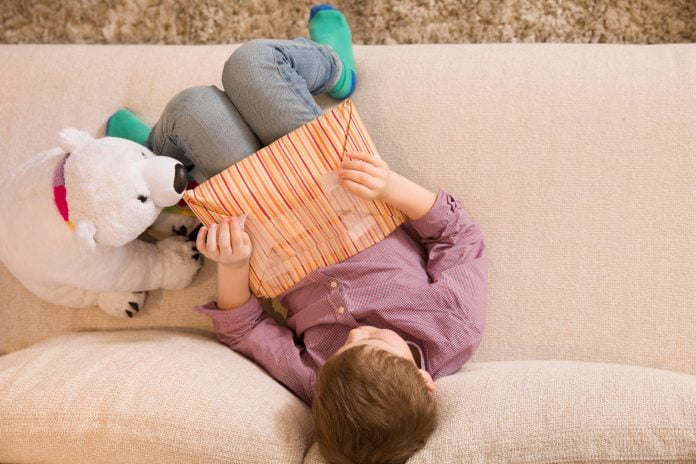This may come as no surprise, but it turns out that more than half a million Aussie parents (56%) are expected to buy their children toys, that that THEY actually want to play with themselves.
The new research comes from eBay, who also found that the main culprit for this? Dads.
Another unsurprising fact is that Covid-19 is another factor in affecting parents’ Christmas gifting decisions.
“It’s no surprise affordability is a key factor influencing presents under the Christmas tree this year, with more than a third (37%) of parents admitting they plan to spend less on gifts due to Covid-19,” says eBay Australia’s, Sophie Onikul.
“Christmas is an expensive time – parents are predicted to spend an average of $184 on gifts per child.”
eBay’s toy experts identify three trends for Christmas:
- Gifts that keep giving: The team at eBay say that toys that require nurturing and encourage patience are in demand as almost half (42%) of parents believe their children will lose interest, in their Christmas gifts within a month. 21% of parents have found that their child’s attention span has shortened due to the impacts of Covid-19.
- Diversity: Four in five (83%) parents think it’s important toys encourage diversity and inclusion.
- Back to basics:
- Building toys: Construction and brick toys are set to top toy lists (41%) as families look for toys that involve spending time together (26%) and encourage mindfulness and calm (20%).
- Board games: Following their success of helping beat boredom during lockdown, 31% of parents are likely to buy their children a board game for Christmas.
- Puzzles: Puzzles have also made a comeback this year, with a third (33%) of parents considering this budget-friendly option.
- Arts and crafts: Activities that encourage mindfulness and creativity have seen arts and crafts return to the top toy list with sales growing by 128% year-on-year during lockdown.
“Classics such a building toys, arts and crafts, board games and puzzles are still sought-after following a surge during lockdown. These are great value for money and offer families a way to bond away from screens,” says Ms Onikul.





